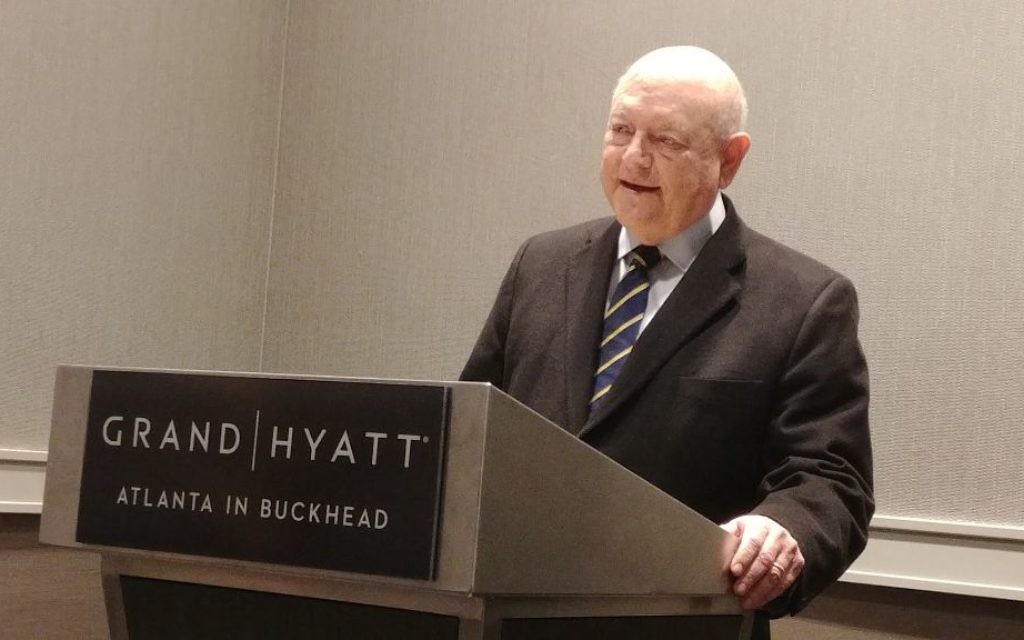Double Standard for Free Speech Seen on Campus
Former University of California President Mark Yudof spoke at Grand Hyatt in Buckhead on Jan. 16.

Jewish college students can go to school anywhere and nowhere to feel safe, former University of California President Mark Yudof told a packed room at the Grand Hyatt in Buckhead on Tuesday night, Jan. 16.
Yudof, an emeritus law professor at UC Berkeley, spoke in his role as the chair of the advisory board of the Academic Engagement Network, a national faculty organization committed to opposing the boycott, divestment and sanctions movement while affirming freedom of expression on college campuses.
Challenges to campus free speech have increased the past decade, partially to suppress hate speech, which Yudof said has no legal definition. Many universities are trying to set parameters for acceptable speech while weighing the costs of security for inflammatory speakers and the effects of professors’ bad behavior.
Get The AJT Newsletter by email and never miss our top stories Free Sign Up
The estimated cost of security for a speaking appearance by white supremacist Richard Spencer or former Breitbart provocateur Milo Yiannopoulos, including barriers, metal detectors and police, is $600,000 to $1.4 million, Yudof said.
That high price for free speech has had a chilling effect on academic departments and campus organizations, which have become hesitant to invite controversial speakers.
Yudof noted that the First Amendment does not make an exception for hate speech, so vilifying Jews or African-Americans or degrading other groups is constitutionally protected.
“People disagree about what hate speech is … but it happens on campuses all the time … and makes people believe they have a mindset that makes them hateful,” Yudof said. “Yet abstract advocacy even of unlawful actions is protected.”
Jewish students are by and large happy on campus but do not feel safe, he said.
Yudof offered some broad techniques universities can use to promote civility without infringing on the First Amendment or damaging the positive exchange of different opinions.
He said many universities are lax at punishing bad behavior. “Universities have a therapeutic aura about them. … It would help if they would enforce their own rules.”
Some rules at universities are too ambiguous and need to be cleared up, he said. “It’s crazy that people can come to campuses with automatic weapons and torches. It makes no sense at all in terms of the safety of the faculty, staff, students and physical property.”
He also said universities need better intelligence. “You have to know what people are up to at demonstrations. … There are a lot of police officers who spend a lot of time on social media websites to determine how dangerous the demonstration is going to be.”
Even if all the steps are taken, Yudof said, universities will still experience a rough road in the next five years. “The legal principles are not really clear, and the animosities are very high. … One of the things that is happening and is unavoidable is that by standing up for free speech principles and by having speaker invitations withdrawn … you morally lift up bad people.”
He added: “My prediction is that we will eventually work this through. … I think we will eventually get it right, but it revolves around a certain level of flexibility but also respect for our democratic traditions.”




comments